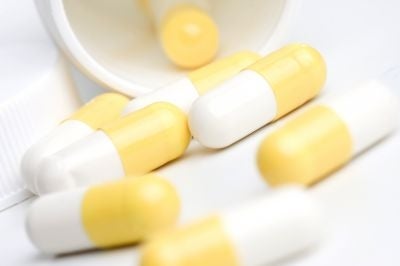Experts warn antibiotic-proof bacteria threaten global health

Resistance to antibiotics is increasing in Europe and throughout the world because of their excessive use, a deadly and costly curse according to health experts meeting in Stockholm Wednesday.
Experts at the 2nd annual European antibiotics awareness day held by the Stockholm-based European Centre for Diseases Prevention and Control (ECDC) said new, hyper-resistant bacteria were emerging, threatening the pillars of global health.
"Some bacteria are becoming resistant to all treatments, forcing us to use older, toxic antibiotics or combinations of drugs that we are only familiar with on paper," Dominique Monnet, a ECDC specialist on the issue told AFP.
The ECDC stressed the situation is particularly worrisome in southern and eastern Europe where antibiotics consumption is higher than elsewhere.
"We are getting closer to the wall and we are not far from it," Monnet said.
A survey he performed with a colleague on about 100 European intensive care physicians showed that more than half of them had treated, in the last six months, at least one patient infected with a bacterium totally or almost totally resistant to antibiotics.
"Without effective antibiotics, modern medical treatments such as operations, transplants and intensive care will become impossible," stressed ECDC's director, Zsuzsanna Jakab.
Premature children, reanimation services and oncology departments are particularly in need of efficient antibiotics, she said.
"The pillars of our system based on antibiotics are crumbling," Otto Cars, a professor at Uppsala University and Swedish expert on the matter said.
The ECDC estimated at 25,000 the number of deaths annually in the European Union caused by bacteria resistant to antibiotics, more than half the number of deaths caused by car accidents.
Hyper-resistant bacteria also cost Europe 1.5 billion euros a year, 930 million of which are paid by hospitals.
And the continent is not the only one affected by the scourge.
The bacteria kill tens of thousands of patients in the United States, according to official figures.
Experts suspect the situation could be even worse in poor countries, where antibiotics circulate more freely and are often available without a prescription.
In Europe, Mediterranean and eastern European countries are the most affected, whereas hyper-resistant bacteria is less of a problem in the Netherlands and Nordic countries because antibiotic consumption is not as high as elsewhere.
Last year, nine European countries including Italy, Spain and Portugal had E.coli infection rates higher than 25 percent, compared to two percent in 2003.
E.Coli is one of the most common resistant bacterium.
Experts lauded awareness campaigns on the use of antibiotics put in place by governments in France, Britain, Belgium, Sweden and elsewhere.
They pointed out that infection rates with the methicillin-resistant golden staph bacteria had decreased in many European countries since 2003, an example of these campaign's results.
"There is cause to be optimistic," Monnet said, nevertheless calling for awareness because "a bacterium can evolve in 20 to 30 minutes."
Experts warned that one of the biggest problems in fighting hyper-resistant bacteria is that few new antibiotics are being developed by the profit-conscious pharmaceutical industry.
Swedish expert Otto Cars stressed only two truly promising antibiotics were currently being developed.
map/rdm/cjo
Join our commenting forum
Join thought-provoking conversations, follow other Independent readers and see their replies
Comments
Bookmark popover
Removed from bookmarks